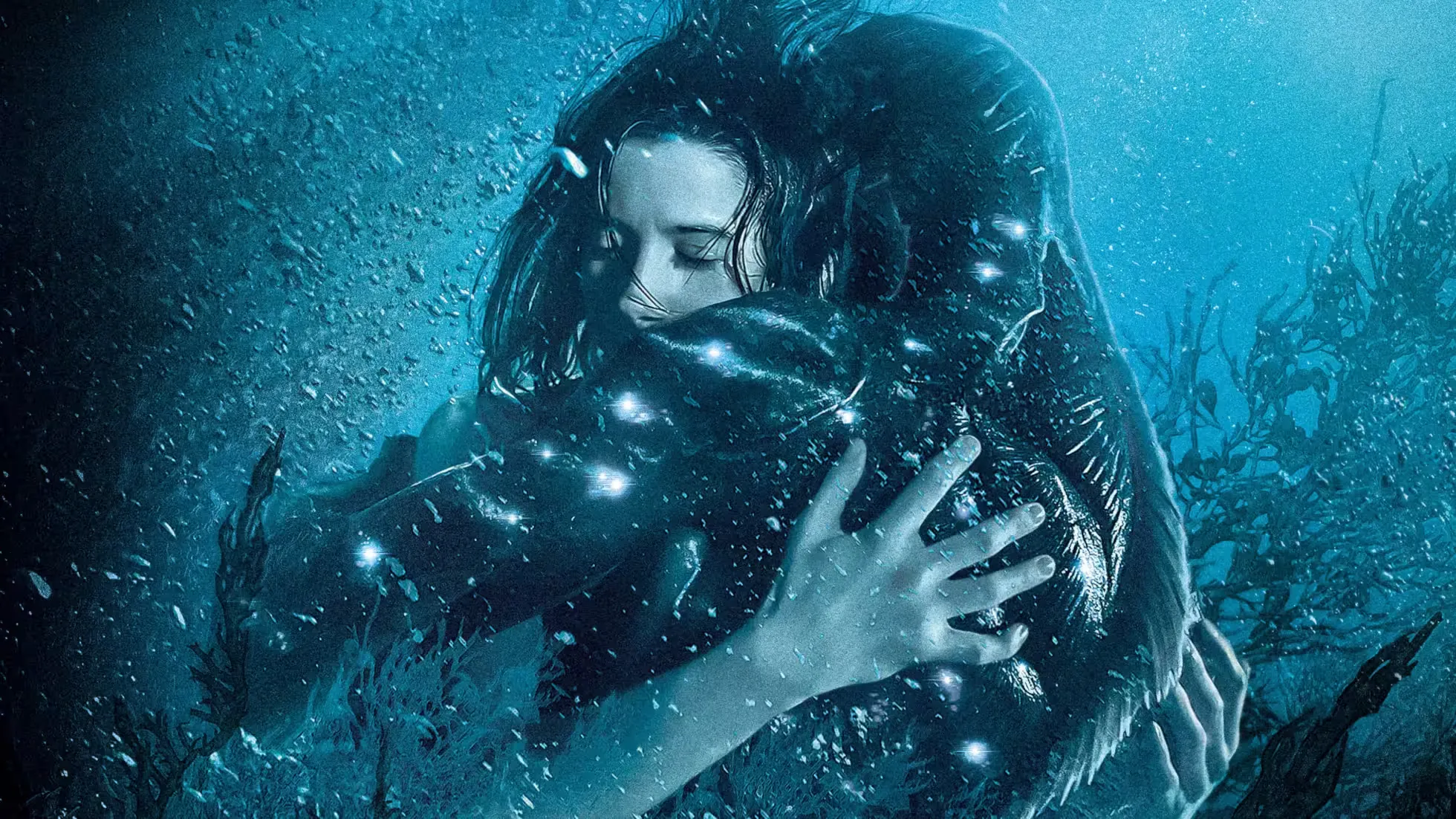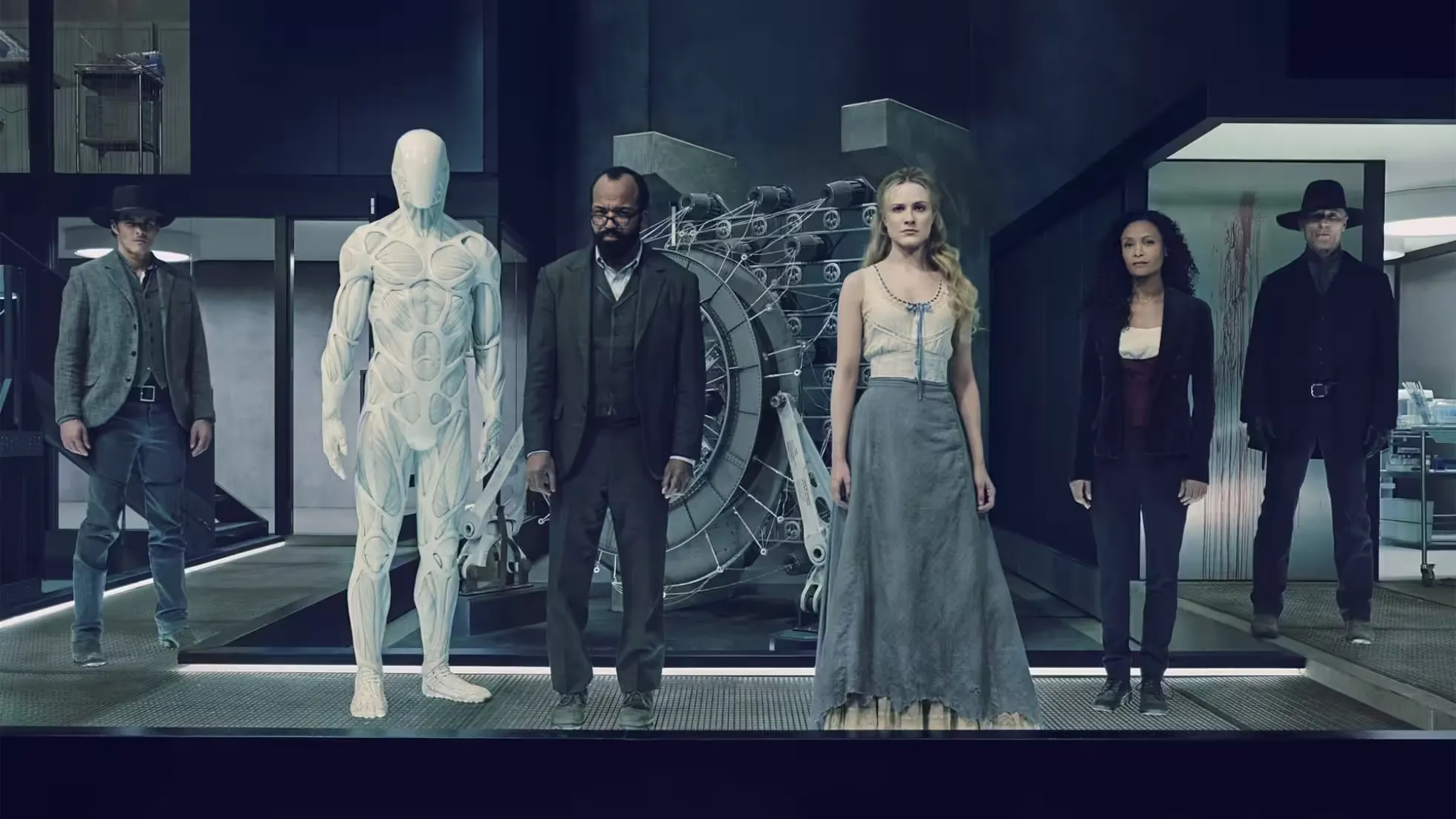Man, Born Alone

It’s a story about a few lonely souls, yet it’s titled The Shape of Water. I never quite understood why. Perhaps just because it sounds beautiful, evoking a feeling of romance.
Elisa, the mute cleaning lady, lives a simple and lonely life. Though she has two lonely friends—Giles, a gay painter, and Zelda, a Black cleaning woman—her favorite moments are those spent alone on the bus. Before the merman appeared, everything was calm: dressing, boiling eggs—mundane but full.
The arrival of the merman shattered Elisa’s quiet routine. Not only did her lunchbox gain an extra egg, her heart also grew an attachment. When Richard, the sadistic colonel, tortured the creature, Elisa felt heartbroken. And when General Hoyt ordered the creature to be dissected, she decided to steal him away. To others, it seemed crazy. To her, it was just a plan. So she asked Giles for help. After great effort, the merman finally sat in her bathtub. Facing possible death, Elisa planned to return him to the sea via the canal on March 10. He healed her muteness and stole her heart. At the port, she fell in front of him. He carried her into the deep. Two lonely souls finally became one.
The merman lived in South America. Locals worshipped him as a god—not just for his powers to regrow hair, heal wounds, and restore speech—but also because of his rarity. He felt emotion, communicated, but in the vast ocean had no one like him. He was a lone voice in the wilderness, so he reached toward humans. The natives revered nature and honored him. But modern man, who doesn’t even believe in the Bible, saw no god—only a biological specimen. Richard brought him to an American space facility, not to communicate, but to extract biomass and build biochemical weapons to win the Cold War. The Soviets had launched Sputnik. The Americans panicked. They pinned their hopes on this “monster.” Human ambition became the merman’s nightmare. Chains, electric shocks, and dissection—human cruelty knew no equal. Thankfully, humans are individuals, not a monolith. A lonely Soviet biologist-spy, Hoffstetler, and the outsider Elisa plotted a secret escape.
But he’s just a fish. A fish who eats cats. When he eats half a cat for dinner, Giles is shocked. The merman draws blood from him, then casually goes downstairs to watch a movie.
A foreign land with dry air is no place for a creature of water. On a stormy night, with help from his outsider friends, he prepares to return to the sea. But Richard races to stop him—his life depends on it. Bang! Bang! Bang! Two bullets hit the merman, one strikes Elisa. Richard never believed he was a god. He thought a gun could end this “monster.” But man must learn awe. A gun can’t kill a god. With one blow of his fin, the merman ends Richard. Then, holding his beauty, he swims into the sea.
Perhaps everyone should thank Richard. He did bring the merman all the way from South America. But the merman didn’t like him. Elisa didn’t. Hoffstetler didn’t. Even Hoyt disliked him—despite the two fingers Richard lost on the job. Richard hated the city, hated its people. He wanted out. A new car, distance from the petty townsfolk. He peed in front of two women to show dominance. He forced Hoffstetler to knock again before entering. He lived to feel superior.
Zelda helped the merman escape; her husband helped Richard find him. The two hadn’t spoken in years, and when they did, it was on opposite sides. Strangers under one roof. Luckily, Zelda had Elisa—and a cook who gave her cigarettes. What else could keep her going? After the merman and Elisa left, would Zelda still live with her husband and work at the space center?
Though Giles lived with Elisa, he felt no romantic desire. He was a man who loved men. In a world overtaken by photography, his artistic talent faded. Even painting a family portrait became a struggle. With failures in both love and career, only the merman’s magic gifted him new hair. Maybe that young white guy—afraid of being alone, bigoted against Black people and gays—would come back to him. After all, who doesn’t like youth?
Hoffstetler was the most tragic. Drafted by his homeland, used as a spy, ordered to dissect the merman, then killed by his own people in a foreign land. A good man, lost to the tides of history.
Man is born alone. We strive to belong, but the very groups we try to join push us away. Maybe eternal loneliness is humanity’s true home.
Published at: Apr 7, 2025 · Modified at: Oct 27, 2025


